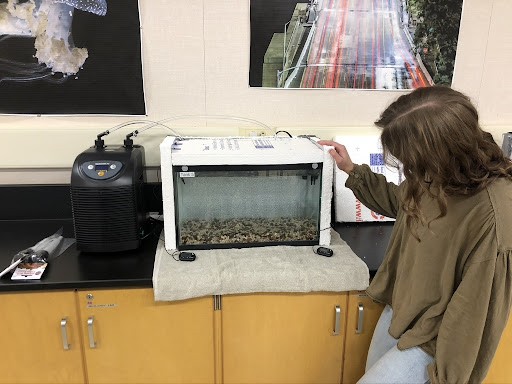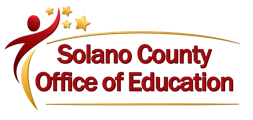GRANT AWARDED TO CONTINUE SPINNING SALMON IN THE CLASSROOM
Solano County Office of Education has received a NOAA B-WET grant that will allow for the expansion of the Spinning Salmon program into Solano County through collaboration with the Center for Community and Citizen Science.
 The Spinning Salmon Project
connects high school students with scientists looking into
Thiamine Deficiency Complex. Thiamine Deficiency Complex (TDC)
was first documented in California’s salmon in 2020. The lack of
thiamine, a compound critical for essential metabolic processes,
leads to spinning, lethargy, and eventual death in salmon
juveniles. The Center for Community and Citizen Science saw this
as an opportunity to implement youth-focused community and
citizen science to engage youth in authentic research, while
contributing essential data to TDC research, specifically
monitoring of mortality rates. Through a double-blind study,
scientists measured thiamine concentration in salmon eggs, which
were then distributed to classrooms where students monitored the
survival and TDC symptoms of their progeny.
The Spinning Salmon Project
connects high school students with scientists looking into
Thiamine Deficiency Complex. Thiamine Deficiency Complex (TDC)
was first documented in California’s salmon in 2020. The lack of
thiamine, a compound critical for essential metabolic processes,
leads to spinning, lethargy, and eventual death in salmon
juveniles. The Center for Community and Citizen Science saw this
as an opportunity to implement youth-focused community and
citizen science to engage youth in authentic research, while
contributing essential data to TDC research, specifically
monitoring of mortality rates. Through a double-blind study,
scientists measured thiamine concentration in salmon eggs, which
were then distributed to classrooms where students monitored the
survival and TDC symptoms of their progeny.
During the 2021/2022 school year, the Center for Community and Citizen Science began a collaboration with NOAA, the Center for Watershed Sciences, and the Department of Fish and Wildlife that developed a youth run citizen science project looking at thiamine deficiency in central valley salmon. The pilot year built out the student research protocols, tools for data analysis and curriculum for middle and high school students.
Funding from the NOAA B-WET grant expands the project into Solano County for the next three years to include teacher training, aquariums, and student field experiences with various Solano County community partners that are supporting the resilience of the watershed. Year one of the project will recruit teachers from county court and/or continuing education schools.
Overall, this program offers:
- Teacher stipends covering time for training as well as implementation
- Funding for all classroom materials (tanks will be able to be kept on site if ongoing participation will continue after grant period)
- Coordination of and funding for field experiences, including some transportation funds
- Classroom materials focusing on highlighting CTE pathways
- Ongoing mentoring and support
- Direct connections with the researchers and scientific community
 Go to the project page for more information.
Questions about the program can be directed to Peggy Harte, Youth Education
Program Manager.
Go to the project page for more information.
Questions about the program can be directed to Peggy Harte, Youth Education
Program Manager.








